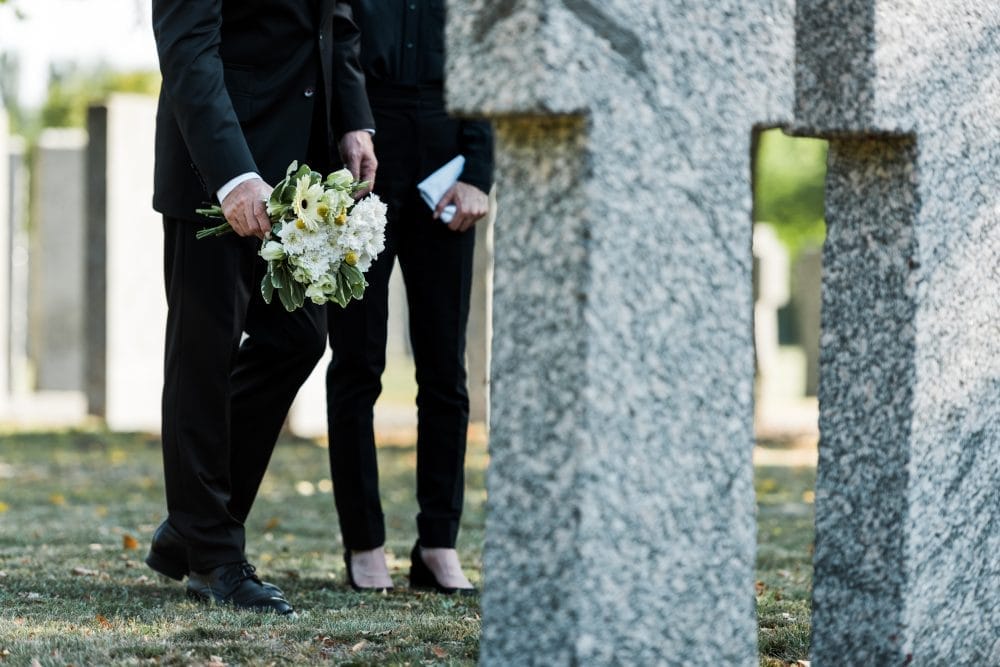Death is already the heaviest blow a family can experience—but what often comes afterward can be even more destructive. Families that once felt unshakable can suddenly find themselves bitterly divided, not because someone died, but because no one talked about what would happen next. Conversations about wills, inheritance, burial wishes, and medical decisions tend to get pushed aside, labeled as “too uncomfortable” or “for later.”
Yet when it later comes, the emotional weight of grief combined with confusion or mistrust can lead to wounds that never heal. Planning for what happens after death isn’t just about money or logistics—it’s about protecting the relationships left behind.
When There’s No Will, There’s War
One of the most painful situations arises when someone dies without a legal will or a clear estate plan. In the absence of written instructions, family members are left to interpret what they think the deceased would have wanted. That ambiguity can quickly become the breeding ground for resentment, accusations, and lifelong feuds. Siblings may argue over who gets what, even if the items have more sentimental than financial value. The legal system may step in without a will, and it rarely honors emotion over order.
Unequal Inheritance Can Widen Old Wounds
Even when a will exists, unequal distribution of assets can resurface old family tensions. If one child is given more than the others, or if a second spouse inherits the bulk of the estate, questions of favoritism, fairness, and loyalty may dominate the grieving process. Family members might feel overlooked or betrayed, which can permanently fracture their relationships. Some may even challenge it legally, dragging everyone into months or years of painful court battles. These conflicts rarely end with a clear winner, only deeper emotional scars.
Grief Makes Everything Worse
Grieving hearts are more fragile, reactive, and prone to misunderstandings. Decisions that might seem minor—like choosing funeral music or what clothes to bury a loved one in—can ignite fierce disputes. With emotions running high, every decision can feel personal, symbolic, and loaded with deeper meaning. People may lash out not because they’re selfish, but because they’re devastated and unsure how to express it. In these moments, planning ahead could have served as a roadmap when the family feels lost.
Sentimental Items Carry Emotional Weight
It’s often not the biggest assets that cause the most division—it’s the little things with big emotional value. A grandmother’s wedding ring, a father’s old watch, or a family recipe book can spark tension when more than one person wants them. Because these objects carry memories, they become stand-ins for connection and love. The sense of loss becomes compounded when someone feels denied access to that connection. Clear instructions about sentimental items can prevent unnecessary heartbreak.
Unspoken Wishes Leave Room for Misinterpretation
When someone passes without clearly communicating their end-of-life preferences, families are forced to guess, and guesswork often leads to conflict. Disagreements can arise over cremation versus burial, traditional funeral versus celebration of life, or even organ donation. Different relatives may feel they are honoring the loved one in the “right” way and refuse to compromise. Each person believes their version is the truest tribute, and in doing so, they may alienate others. These disagreements could have been avoided if the wishes had been put into writing or shared openly.
Healthcare Decisions Can Divide Families
Before death even occurs, medical choices at the end of life can put loved ones at odds. Decisions about life support, hospice care, and emergency treatments often fall on family members who are unprepared to make them. If there’s no advance directive or healthcare proxy, everyone may have a different opinion on what the person would have wanted. These decisions are emotionally charged and can cause lingering guilt or resentment. A simple conversation beforehand could make these impossible moments just a bit more bearable.
Money Changes Everything
Even families who rarely talked about finances during someone’s life can become laser-focused on it after death. The sudden distribution—or lack—of wealth can stir up feelings of entitlement, injustice, or suspicion. People may question why certain accounts weren’t disclosed, why debts were hidden, or why someone was named as an executor. The presence of money tends to exaggerate every personality trait: the controlling become more controlling, the anxious more paranoid, the bitter more vindictive. Transparency and planning can help minimize these emotional explosions.
Blended Families Face Unique Challenges
In blended families, post-death planning is even more delicate and complex. Children from previous marriages, current spouses, and extended relatives may all have different expectations and levels of involvement. Without clarity, assumptions can quickly turn into accusations of betrayal or exclusion. Old rivalries may resurface, particularly if someone has been prioritized over others. These families’ Estate planning must be thoughtful and inclusive to avoid heartbreak.
The Role of Executors Can Strain Relationships
The person appointed to carry out a will—known as the executor—can easily become the target of frustration or mistrust. Even when acting in good faith, an executor may be seen as secretive, biased, or unfair simply because they hold authority. Their decisions may be challenged, their motives questioned, and their relationships strained, especially if they’re also a family member. The emotional labor of being an executor is immense, especially when loved ones are simultaneously grieving and suspicious. Choosing the right person and giving them support is essential.
Communication Can Save Everything
At the core of most post-death conflicts is a lack of communication, before and after the loss. Families who have open, honest conversations about expectations, wishes, and fears tend to emerge stronger after tragedy. These talks don’t have to be cold or clinical; they can be loving, respectful, and reassuring. Even difficult topics like debt, estranged relationships, or burial preferences can be handled with care and sensitivity. It’s never too early to talk about the end—it’s an act of love, not morbidity.
Death Doesn’t Have to Tear a Family Apart
Planning for what happens after death is never easy, but avoiding it can leave behind far more pain than grief alone. The fallout from a lack of preparation can shatter even the closest of families, leaving emotional wreckage in its wake. Honest conversations, clear legal documents, and thoughtful planning can make all the difference when the worst happens. Death is inevitable, but the damage it causes to relationships doesn’t have to be.
Have you witnessed how a lack of planning created tension after someone passed away? Share your experience or thoughts in the comments below.
Read More
9 Inheritance Secrets Your Parents Will Never Tell You
Are Baby Boomers the Last Generation to Truly Know Freedom?






